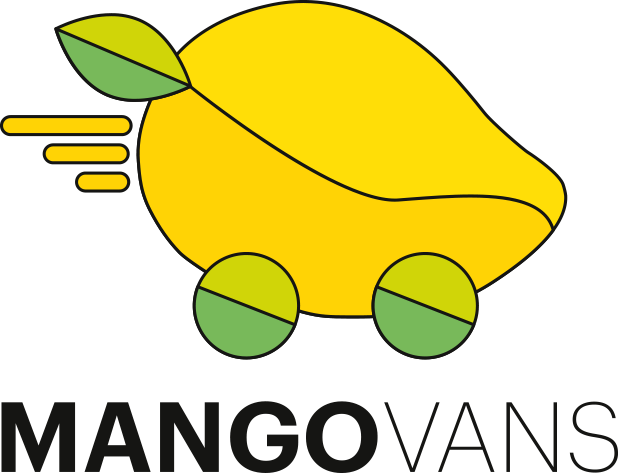Permits and Licenses Needed for Mobile Businesses
Van conversion companies play a key role in helping mobile business owners understand and meet local permitting requirements. Many entrepreneurs mistakenly believe that a basic business license covers all aspects of operating a mobile unit, but this isn't the case. From food trucks to mobile salons, each business type often requires its own specific permits—many of which vary by city or county. Additionally, some assume that once permits are obtained, they never need updating. In reality, many jurisdictions require annual renewals, inspections, or modifications if routes, services, or vehicle specs change. Partnering with experienced professionals ensures your mobile venture stays compliant from the start.
What Qualifies as a Mobile Business?
A mobile business is any enterprise that operates from a vehicle rather than a fixed storefront, allowing owners to bring their products or services directly to customers. These businesses span a wide range of industries, from food trucks and mobile salons to pet grooming vans and wellness studios. As long as the core operations are conducted from a fully equipped, road-ready vehicle—often built by van conversion companies—it qualifies as a mobile business. This flexibility enables entrepreneurs to serve multiple locations, attend events, and adapt to changing market demands with ease.
Food trucks
Mobile salons and spas
Mobile retail boutiques
Wellness vans (yoga, massage, therapy)
Creative studios and galleries
These ventures all operate under unique regulations depending on your state or city.
Common Misconceptions About Mobile Business Permits
Many aspiring entrepreneurs believe that getting a mobile business permit is a one-size-fits-all process—but that’s far from true. A common misconception is that a standard business license automatically covers mobile operations, when in fact, specific permits are often required based on your service type and location. Some also assume that permits are only necessary once, but many cities require annual renewals or updates when routes or services change. It’s crucial to work with knowledgeable van conversion companies and do thorough research to stay compliant and avoid costly legal issues.
"I only need a general business license." (False)
"Once permitted in one city, I can operate anywhere." (False)
Understanding these nuances early can save time and money.
Navigating the Permits and Licenses Process
Essential Permits You May Need
General Business License – Required for all business operations.
Mobile Vendor Permit – Often necessary for operating from a vehicle.
Zoning Permit – Ensures your business is allowed in specific areas.
Health Department Permit – Crucial for food trucks or wellness services.
Fire Department Clearance – Especially for mobile food businesses.
Where to Obtain Permits
City Hall or local municipality office
State licensing agencies
Online portals for business registration
Real-World Example A mobile nail salon in Los Angeles must obtain a cosmetology license, a health permit, and a special street vending license to operate legally.
Considerations When Working with Van Conversion Companies Van conversion companies, including conversion specialists, can often help you plan your build around legal standards. For example:
Including hand-washing sinks for health inspections
Proper ventilation for cooking or beauty services
Secure electrical systems using a Victron charge controller
Climate control with a low profile air conditioner
Planning Across Jurisdictions If you plan to operate across county or state lines:
Check for reciprocal agreements
Understand where new permits are required
Be aware of different zoning laws
Building a Legally Sound Mobile Business
Zoning Laws and Parking Regulations Understanding where you can legally operate is critical.
Some cities restrict vending near schools or residential areas
Others have designated mobile vendor zones
Overnight parking may require special permits
Insurance Requirements for Business Vans
Commercial Auto Insurance – Mandatory for most mobile businesses
General Liability Insurance – Protects against claims and accidents
Product Liability Insurance – Important for food and beauty services
Health and Safety Standards for Food and Retail
Use food-grade materials in kitchen builds
Install proper sinks and waste disposal systems
Comply with OSHA safety regulations
Tax Implications for Mobile Business Owners
Understand state and local sales tax obligations
Track income by location if operating across cities
Work with an accountant familiar with mobile operations
Checklist: Legal Readiness for Your Mobile Business
How Van Conversion Companies Can Help Experienced conversion specialists can design your van with these legal requirements in mind:
Custom conversion vans tailored to your services
Built-in compliance for health and fire codes
Solar panels and Victron charge controller setups for power
Low profile air conditioner for optimal airflow in small spaces
Get Started with Mango Vans Today Legal prep is just one part of your journey. When you're ready to turn your dream into a compliant, fully equipped mobile business, Mango Vans can help. Our team of experts understands how to integrate functionality, compliance, and custom design—so you’re ready for business from day one.

